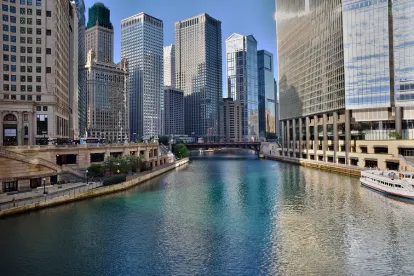Illinois Governor J.B. Pritzker has issued Executive Order 2020-18, which continues and extends his prior COVID-19 Executive Orders (including the Stay-at-Home Executive Order) through April 30, 2020.
The Governor’s April 1 Executive Order comes on the heels of President Donald Trump’s announcement about extended federal social distancing guidelines through the end of the month
In addition to issuing a Second Gubernatorial Disaster Proclamation redeclaring all counties in the State of Illinois disaster areas, Executive Order 2020-18 contains the following provisions continuing and extending all or parts of the previously issued COVID-19 Executive Orders through April 30, 2020:
-
Executive Order 2020-04, which closes the James R. Thompson Center to members of the public for most purposes. Executive Order 2020-04 also suspends the two-year continuous service requirement for state employees to receive advancement of sick leave pursuant to Title 80, Section 303.110 of the Illinois Administrative Code Personnel Rules.
-
Executive Orders 2020-05 and 2020-06, which close most public and private K-12 schools for educational purposes.
-
Executive Order 2020-07, which prohibits businesses offering food or beverages from allowing on-premises consumption. Executive Order 2020-07 also suspends the one-week waiting period for unemployment insurance claims and suspends several provisions of Illinois’ Open Meetings Act.
-
Executive Order 2020-08, which, in part, temporarily suspends certain license and permit expiration provisions of the Illinois Vehicle Code and Illinois Identification Card Act.
-
Executive Order 2020-09, which encourages the use of “telehealth services” for medical care.
-
Executive Order 2020-10, which requires Illinois residents to maintain social distancing and stay at home, except to engage in “Essential Activities, Essential Government Functions, or to operate Essential Businesses and Operations.”
-
Executive Order 2020-11, which, in part, amends the human services and day care center provisions of Executive Order 2020-10, and the e-learning provision of Executive Order 2020-05.
-
Executive Order 2020-12, which, in part, suspends several employment requirements for certified nursing assistants.
-
Executive Order 2020-13, which suspends most admissions to the Illinois Department of Corrections from Illinois county jails.
-
Executive Order 2020-14, which allows notarization and witnessing requirements under Illinois law to be completed remotely by two-way audio-video communication technology.
-
Executive Order 2020-15, which, in part, suspends the assessments, school terms, and daily pupil attendance requirements under the Illinois School Code.
-
Executive Order 2020-16, which suspends the repossession of vehicles and allows training required pursuant to the Private Detective, Private Alarm, Private Security, Fingerprint Vendor, and Locksmith Act to be completed through online instruction.
-
Executive Orders 2020-03 and 2020-17, which extends several application deadlines for craft growers, infusers, and transporters under the Cannabis Regulation and Tax Act.






 />i
/>i

